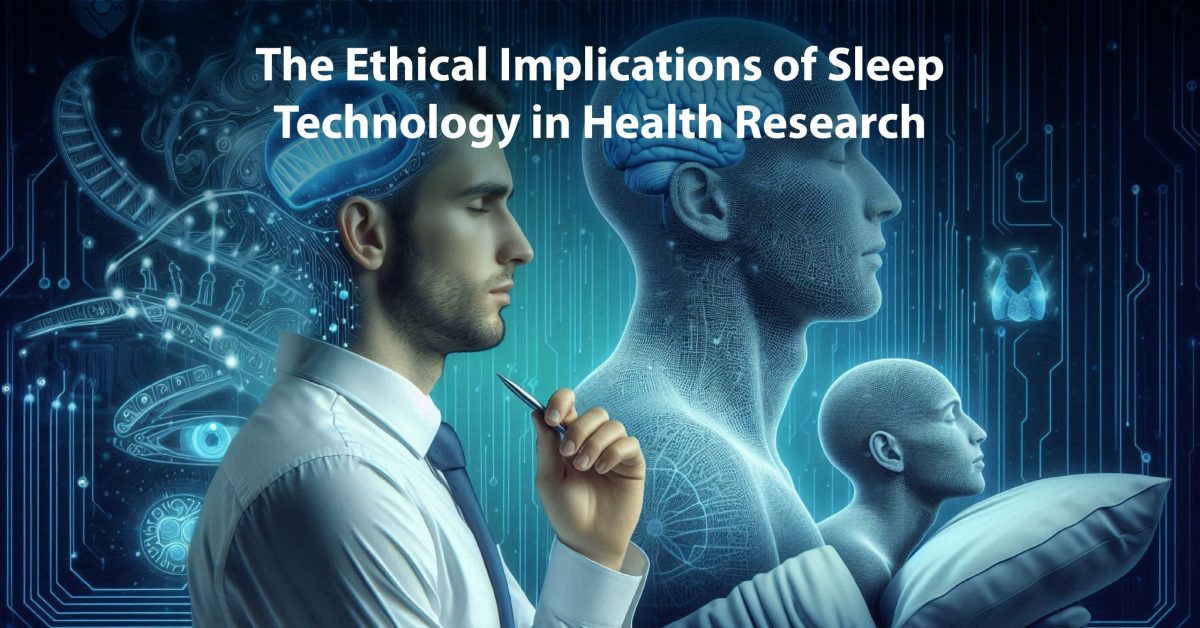The advancement in wearable sleep technology has greatly changed the way people sleep, especially in terms of health research and clinical practice efficiency. These include the Fitbit, Apple Watches, and other wearable technology available for purchase, where people are able to track their sleep, activity, and even their pulse. Such technologies are appreciated due to factors such as convenience, cost-efficiency, and the overtime accumulation of large amounts of data. However, despite the clear benefits that may be derived from the use of such tools, their application in health research is surrounded by a number of limitations in terms of ethics. These concerns are about data security and privacy, racism and technology, efficacy, and risks tied to applying non-industry-standard wearable consumer tech for health technologies. With sleep as a burgeoning health concern, it is time to collect and reflect on the ethics of such technologies to support health equity, security, and integrity of data.
Data Privacy and Consent
The first ethical consideration reflected in wearable sleep technology is evidently data privacy. Consumer sleep devices produce a huge volume of individual data about sleep patterns, HRV, and physical activity. Some of this data is very sensitive, particularly in conducting health research or in clinical practice. With this raise, an important area of concern, including the ownership of this data and how it will be processed and disseminated, emerges to become an important ethical question concerning wearable sleep technology.
Many wearable devices are still under the regulation of policies that provide maximum protection for the user. For instance, information gathered by wearables is frequently stored with the private companies instead of the doctors and medical practitioners. This throws into question consent, particularly where the data is passed on to third-party firms, used for promotional activities, or sold without the user’s direct permission. These devices usually come with long and complicated terms of service that most users do not go through and agree to the use of their data in what can be termed unethical.
Of all values to be upheld in health research, the principle of informed consent is among the most important. Users must be aware of how the data collected from them will be used, who has access to such data, and any possible consequences of providing personal health information. However, wearable devices distort this interface because the information that the devices are collecting is real-time, and often users may not be fully aware of the extent of monitor they are under. Lack of a well-defined structure for consent and data utilization can thereby provide an unstable ethical premise for health studies that involve wearables.
Racial and Technological Bias
Another major ethical consideration in sleep technology is the question of racially perpetrated design and functionality of wearable devices. Most of the consumer wearable devices apply the PPG, which works on the basis of the blood flow and other associated cardiovascular indices like heart rate. However, this technology is not that efficient when it comes to the darker shades of skin tones. Studies reveal that smart wearable devices are less precise when worn by people with dusky complexions, and this results in biased or erroneous health records for such a population.
This inherent bias has more general ethical considerations for health equity. Reporting that the devices underperformed specifically for individuals with darker skin tones while wearables are more often incorporated into health studies and trials, this can only widen the gap in care. For instance, in the case of race, a patient of that particular race may be diagnosed wrongly or receive substandard sleep health care since the data that was fed into that device was wrong. This is not merely a technical matter; it raises a fundamental ethical question concerning the manner in which the development of healthcare technology incorporates and responds to concerns of diversity, disability, and oppressed sexuality. Researchers and developers must pay attention to equity by making sure that wearable devices have been tested in different populations before being embraced for research.
